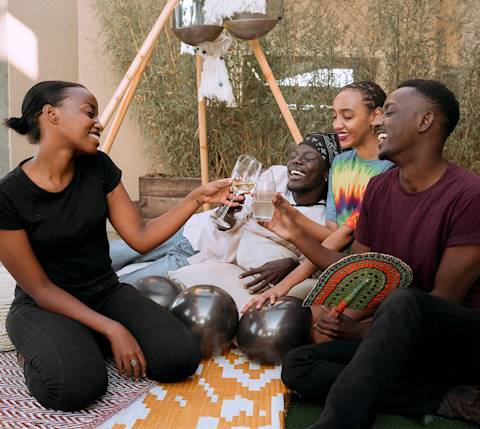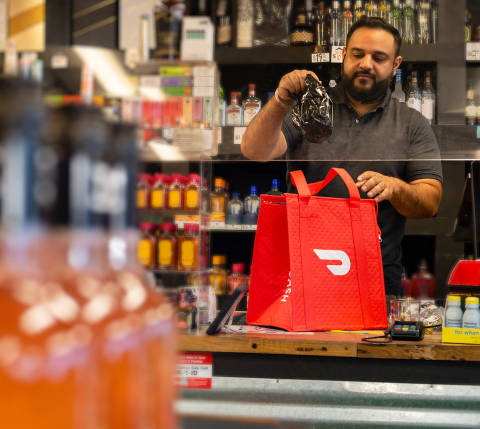For as long as there has been human civilization, there have been alcoholic beverages. That's not just a figure of speech — a fermented cocktail of rice, honey, and fruit was found in Neolithic pottery dating back to 7,000 BCE. But while this concoction might sound surprisingly similar to a home-brewed mead or sake recipe, it's safe to say that alcohol trends as a whole have changed a lot over the millennia. In fact, they can change a lot over a few years.
Relatively recently, a growing number of customers started showing a greater appreciation for no-alcohol and low-alcohol alternatives, while others were forgoing conventional beverages like beer and wine in favor of bold, creative cocktails — often in a "ready-to-drink" (RTD) form, such as a can. Trends like these are still gaining momentum and going strong, and there are other developments worth noting.
Why is it important to understand alcohol trends?
Understanding these changing year-over-year alcohol trends is incredibly useful for businesses, whether liquor and convenience stores seeking to proactively stock up on in-demand products or restaurants and bars aiming to optimize menus to suit consumer preferences. So what does that data say?
The latest insights from DoorDash can help business owners see that alcohol sales tend to surge later in the year: Christmas Eve, Christmas Day, New Year's Eve, Thanksgiving, the day before Thanksgiving, and Black Friday dominated the top six spots in terms of the biggest US holidays for alcohol deliveries on DoorDash in 2023.
But DoorDash data can also give more granular insight into the actual drinks consumers are ordering.
What were the most popular alcohol beverages in 2023?
Looking at DoorDash data from January 1 to October 31, 2023, wine is a common choice for customers, though it isn't necessarily the most popular compared to other beverages. Here are the top 10 alcohol beverages ordered on DoorDash in the US:
Vodka
Hard seltzer
Tequila
Sauvignon Blanc
Prosecco
Whiskey
Pinot Grigio
Lager
Pinot Noir
Rum
Baby boomers account for 36% of beverage alcohol-buying households, but as more of them reach retirement age, their alcohol consumption and disposable income levels decline. Meanwhile, 62% of the global population will be millennials or younger by 2025. Along with socially conscious buying habits, these younger consumers don't appear to drink as much as their predecessors.
For example, in terms of Gen Z alcohol trends, 45% of Gen Z consumers of legal drinking age have never consumed alcohol. Among those that do drink, tasty offerings that can be enjoyed in social settings seem to take precedence, with RTD cocktails, hard seltzers, and flavored malt beverages are among their top picks.
What are the biggest alcohol consumption trends of 2024?
Business owners should pay attention to global beverage trends that are taking off right now — from the growing love of savory vegetable cocktails to the TikTok-fame of refreshing spritzes — but there are trends that have persisted over the past couple of years that may be particularly relevant.
So whether they're sipping their favorite drinks at a bar, in the restaurant, or from the comfort of their own homes, here's a taste of the latest non-alcoholic and alcoholic beverage trends that show no signs of slowing down.

1. The demand for seltzers is as strong as ever
NIQ reports that hard seltzers comprise some 43% of RTD sales and 65% of consumption occasions. And while hard seltzer sales don't show any signs of slowing, also expect to see demand grow for a greater variety of spiked sparkling beverages such as hard kombucha.
2. Natural and organic wines hold great appeal
With unique tastes that can range from tasty to flat-out funky, natural wines are wines that have been made with organic ingredients, no additives, and have had little intervention in their fermentation. Essentially, it's exactly how wine was made thousands of years ago.
Natural wines have been growing in popularity in the last couple years — especially among millennials and Gen Z — ever since Institute for Origins and Quality (INAO), the French Ministry for Agriculture and the French Fraud Control Office agreed on a definition of "natural wine." Whether you're a restaurant or retailer, having a handful of natural wine brands within your offerings is a good way to appeal to an adventurous customer who's not afraid to drink off the beaten path.
3. RTD cocktails continue to be crowd pleasers
Offering to-go cocktails has also become the standard both for retailers and restaurants. In recent years, RTD beverages like canned margaritas have been one of the fastest-growing alcohol categories, and NIQ notes that the consumption of RTD beverages has expanded by 104% over the last two years, eclipsing other market segments.
Why is this category exploding? Two reasons: convenience, and recyclability. Canned drinks are more portable and less fragile than glass containers, making them easy for consumers to bring to parties and gatherings, and (where allowed) public parks and beaches.
But taste has a lot to do with it too, with new refreshing and versatile varieties constantly hitting shelves. It's no surprise that the RTD cocktails market is projected to have a compound annual growth rate of 13.4% from 2022 to 2030.

4. Low- and no-alcohol is still having a moment
One of the most exciting and innovative alcohol trends to come about in recent years is the growing popularity of low- or no-ABV drinks. A 2024 DoorDash survey found that almost a third (29%) of consumers report ordering low-ABV or non-alcoholic beverages. With moderation in mind, many consumers across the globe are embracing no-alcohol and low-alcohol beverages. NIQ reports that sales of non-alcoholic beer, wine, and spirits exceeded $565M in 2023, surpassing the previous year by 35%.
This shift away from heavy drinking is largely tied to an increased focus on health. Joshua James, owner of the non-alcoholic retailer Ocean Beach Cafe in San Francisco, CA, explains what's behind the shift to low- and no-ABV beverages.

“It's not just about abstinence from alcohol. This movement is also about people who just don’t want to drink as much. They want to enjoy some of the same flavors from alcoholic beverages, but without the hangover or other negative side effects.”
This doesn't just mean switching to sodas, juices, or kid's drinks. James is particularly excited about the boom of non-alcoholic producers making flavors "for a grown-up palate." Some of his favorite brands right now includebotanical non-alcoholic craft cocktails from Curious Elixirs, and non-alcoholic wines from Sovi Wine and Surley Wines. He notes, "We now have all of these complex flavors in a non-alcoholic form, so that I can make a hot toddy or a craft cocktail that tastes just as good, without consuming alcohol."
Having a variety of low- and no-ABV drink options available is especially relevant as the sober-curious movement grows. Many people, especially millennials and Gen Z, are embracing a new relationship with drinking where they either mindfully reduce their intake or periodically take breaks from alcohol altogether. Geographically, James sees the no-ABV movement as just starting to grow in the United States, whereas non-alcoholic beers have had a greater market presence in markets like the United Kingdom and Germany for years. "Now, we have this global mass adoption of drinking less," he explains.
As the non-alcoholic movement grows, make sure to have interesting and unique low- and no-ABV alternatives alongside your alcohol delivery options so that customers who are looking to lower their alcohol intake can still enjoy a delicious adult beverage. Instead of listing these items separately, consider placing them near or next to your alcohol offerings — whether that's on your menu or on a shelf — so that customers can organically discover your non-alcoholic alternatives.

5. Consumers seek the convenience of alcohol delivery
According to the 2024 Restaurant & Alcohol Online Ordering Trends Report from DoorDash, 41% of consumers report using alcohol delivery more than last year. Convenience is a key factor — 39% of consumers say the top reason they use alcohol delivery is being able to shop from the comfort of home, while 37% note it saves them time.
For LA Liquors in Washington, DC, partnering with DoorDash for alcohol delivery has allowed them to grow beyond their neighborhood to reach customers across the entire city. From 2022 to 2023, DoorDash generated more than $15,000 in average monthly sales, and marketing tools such as Promotions and Sponsored Listings helped bring in more than $141,800 and nearly 2,000 new customers over 12 months.
With the increase in order volume through DoorDash, LA Liquors has been able to get better deals with their suppliers since they can now buy in bulk. "Instead of ordering a ten-case deal, now we can order a 20-case, which helps to bring our profits up by keeping costs down," says Tanisha Diggs, co-owner of LA Liquors.

"If I had to predict, I would say this is the way of the future. I think every liquor store should do alcohol delivery."
Stay ahead of consumer trends with alcohol delivery
Customer alcohol preferences are constantly, and rapidly, evolving — restaurants and retailers who lag behind in their understanding of the market risk losing out on maximizing sales. Understanding the most current alcohol trends gives you a vital edge in effectively planning and strategizing your operations.
Interested in boosting your business by delivering the most bought alcohol products customers prefer? Start alcohol delivery with DoorDash today.





